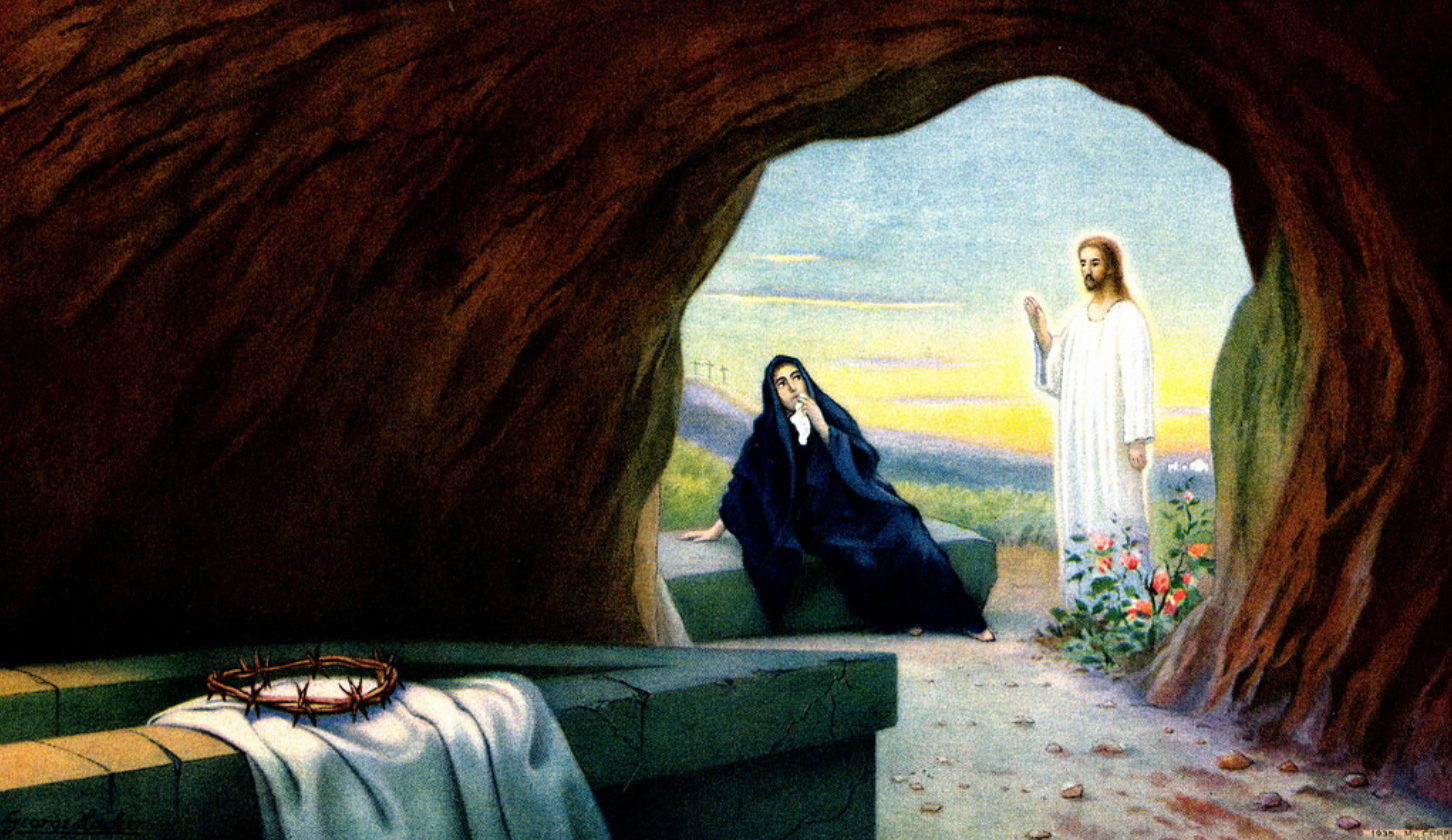Lesson 7: Resurrection According to John
 The entire gospel of John can be read as a discourse on what Jesus’ resurrection means for us. John’s Jesus of Nazareth bears little resemblance to that of the other three evangelists because it is nothing approaching a historical biography. It only makes sense if you see it as a rereading of events in Jesus’ life from the perspective of his resurrection.
The entire gospel of John can be read as a discourse on what Jesus’ resurrection means for us. John’s Jesus of Nazareth bears little resemblance to that of the other three evangelists because it is nothing approaching a historical biography. It only makes sense if you see it as a rereading of events in Jesus’ life from the perspective of his resurrection.
John repeatedly writes that the universal resurrection is “coming and now is”. In other words, when Jesus encounters those who share his life, he does so as the Risen Lord. Those engagements then serve as models for his coming into our lives. We do not need to wait for Christ’s physical return, because our present response to his offer of grace and truth serves as our judgment.
If we believe Jesus when he declares “I am the Resurrection and the Life” we are reborn right now. John obviously refers to the Risen Lord encountering us in the means of grace made available through the Church when he writes we are reborn of water and the spirit, we hear the words of eternal life, and we eat the bread of life.
He continually insists God’s work is forgiving sins. We ourselves do the judging. Accepting God’s forgiveness raises us to new life. Rejecting leaves us to suffer the consequence of our sin.
All of this enables John to play with various ways Jesus is raised to glory. He is lifted up on the Cross as the Lamb of God who takes away the sin of the world. He is raised from death to eternal life. He ascends back to the Father in heaven along the route he once descended. He is elevated in the confession of those who once doubted but now declare “\My Lord and my God”. All of these and more are instances of resurrection,
Since every event in Jesus’ life serves as a resurrection appearance, John has no need for an extended forty-day period. He places the Ascension and Pentecost on Easter day
Chapter 21 is an addendum to the original gospel that John uses to present another understanding of resurrection. It begins with a rereading of Jesus’ calling his disciples. They have returned to fishing in Galilee. A man appears on the shore who enables them to make a great catch after accomplishing nothing.
There is a rather awkward going back and forth between recognizing Jesus and not that continues into the second section of the story. Jesus provides breakfast when they return to shore. He is known in the breaking of the bread associated with the Last Supper and the communion meal.
In the third part, Christ forgives Peter three times, apparently overcoming the three denials. He then sends him forth to care for his brothers and sisters with unconditional love.
The conclusion is very brief, “Follow me! Their mission is also resurrected from defeat as the Risen Christ calls his disciples back into action.
Okay, we have gone through the many ways the Bible understands resurrection. Next week we begin interpreting what they mean for us today,

 Frontline Study is an online discussion of the scriptures, inviting you to share your comments and your reflections on each weekly topic. Simply click on the "Add Reply" text at the top of each post to see what others have posted and to add your thoughts.
Frontline Study is an online discussion of the scriptures, inviting you to share your comments and your reflections on each weekly topic. Simply click on the "Add Reply" text at the top of each post to see what others have posted and to add your thoughts.